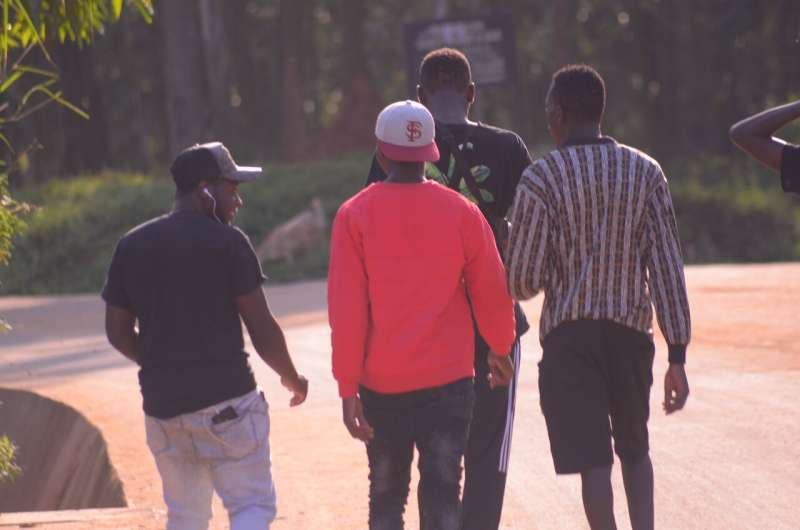This article has been reviewed according to Science X's editorial process and policies. Editors have highlighted the following attributes while ensuring the content's credibility:
fact-checked
proofread
Black men reap mental health benefits from 'otherfathering'

Black men serve a variety of parental roles in their communities—from teaching to coaching to mentoring youth. A new study reveals how this work, called "otherfathering," influences the men's mental health.
The findings are published in the Journal of Multicultural Counseling and Development, a journal of the American Counseling Association. The study showed that men who serve as otherfathers find the role deeply fulfilling, although they often face several logistical and emotional challenges.
"The Black men represented in this study who act as otherfathers in their communities are proud to do it and doing so gives them a sense of purpose," said Michael Hannon, Ph.D., an associate professor of counseling at Montclair State University in New Jersey and lead author on the study. "But they acknowledge that doing so is challenging, due to their desire to provide in ways that are feasible or sustainable. That can lead to feelings of guilt, frustration and stress."
To better understand the experience of otherfathering, Hannon and his colleagues interviewed eight participants from organizations of Black men whose mission was to mentor Black children and adolescents. The participants said their otherfathering ranged from providing job or educational support to sharing wisdom.
"Sometimes it's just as simple as, 'Mr. A … can you write me a letter of recommendation for the National Honor Society?'" one participant told the researchers. "And then sometimes it's just at the corner store and a young man walks in and [says], 'Hey can you give me some life knowledge?'"
The men in the study reported feeling stress from lack of financial support for their work and balancing otherfathering with personal and family commitments. Some said they have difficulty fully helping youth who have multiple commitments.
"The kids who come to the mentoring programs are competing with track, football, basketball," one participant said. "So they may not get all they could have gained from the mentoring programs because of their prior obligations."
Overall, however, otherfathering yields substantial psychological returns, the researchers report.
"The cumulative effect of these experiences (i.e., rewards and challenges) appears to have a positive impact on participant mental health and well-being that keeps them otherfathering for many years despite the various stressors and challenges experienced," Hannon and his co-authors wrote.
The researchers recommend further studies with more participants to help counselors best understand the distinct experiences of Black men who engage in otherfathering. They also urge counselors who work with Black male clients to recognize the burdens and tensions that otherfathering can produce. They recommend counselors:
- suspend preconceived notions and/or stereotypes about Black men;
- demonstrate a genuine interest in learning about Black men's lived experiences; and
- engender trust in the therapeutic relationship so that Black male clients are more willing to be vulnerable.
More information: Carla Adkison‐Johnson, Understanding the Black male experience: Recommendations for Clinical, Community, and School Settings. Introduction to Special Issue, Journal of Multicultural Counseling and Development (2023). DOI: 10.1002/jmcd.12287
Provided by American Counseling Association




















